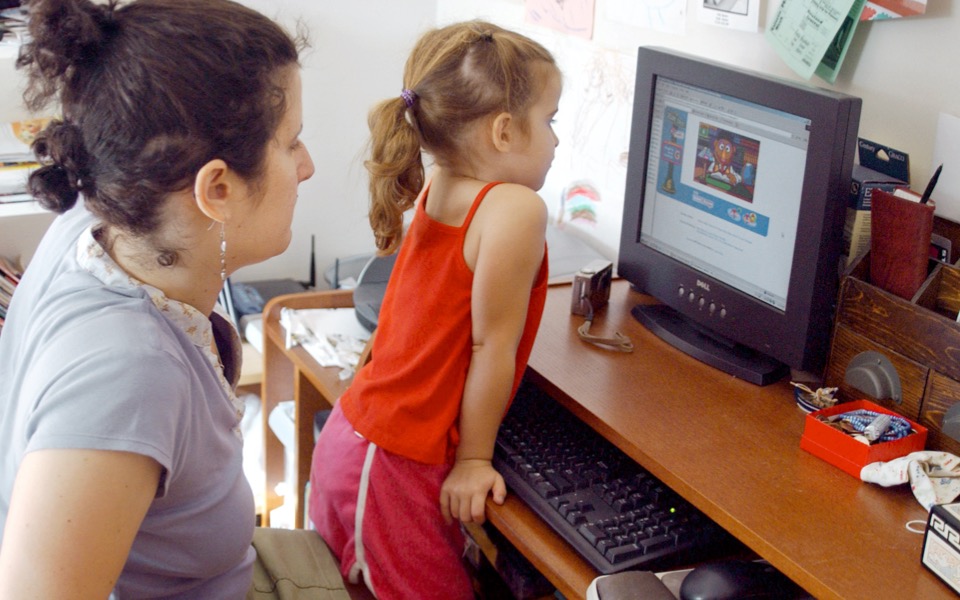Electronic nannies, inattentive parents, distracted kids

“There are times when I come back from school that I just go straight to my room. Why? Because the house is a minefield – my parents screaming at each other or my brother arguing with my father. I want peace and quiet, so I spend hours shut up in my room. I watch movies, play games, chat with friends on Facebook or listen to music. I put on my headphones and create my own microcosm, where it’s quiet and where I have control of my life.”
This is an extract from the testimony of 15-year-old Eva, which was presented at a recent conference in Athens on digital education that focused on the proper use of digital media by children and teenagers.
The conference was organized by the Teenagers Health Unit at the Panayiotis & Aglaia Kyriakou Children’s Hospital and the scientific organization Mazi gia tin Efiviki Ygeia (Together for Teenage Health).
According to data presented at the event that stemmed from research conducted on children aged 14 to 17, 20 percent have been the subject of online bullying, 13 percent show signs of addiction to the internet, 20 percent have visited a website with inappropriate content and a rather worrying 60 percent have had some form of contact online with people they have never met. Moreover, 30 percent of the teens surveyed have physically met with people they first encountered online.
“Digital education is the main issue. Children today are growing up and increasingly living with new technologies. Anyone who isn’t online is basically considered illiterate,” says Artemis Tsitsika, a professor of pediatrics and scientific director of the Teenagers Health Unit.
“The internet is a fascinating medium that can offer education, entertainment and information. At the same time, though, it contains a lot of risks. For example, a child can play extremely violent games in an atmosphere of virtual reality and then come to see violence as acceptable,” she warns.
Mitigating some of the ills that can be caused by excessive dependence on the internet requires cooperation between the family, educators, experts and the state, Tsitsika stresses, adding that this may not be easy. “There are a lot of parents who are technologically more ‘backward’ than their children and can’t effectively monitor their online activity. In other cases, the parents themselves are hooked on the internet,” the health expert says.
Tsitsika says that a rise in the use of the so-called “electronic nanny” – basically parking kids in front of a computer to keep them occupied – has grown “either because the parents are tired and don’t have time, or because they are online themselves.”





